Why Sales Reporting Is the Linchpin of Scalable Growth
If there’s one truth I’ve learned after decades building, leading, and fixing sales teams, it’s this:
You can’t grow what you don’t track. And you can’t fix what you don’t understand.
Sales reporting isn’t a checkbox; it’s your company’s growth mirror. It reveals whether your expectations are grounded, your goals are realistic, and your sales team is being set up to win.
Sales Isn’t Broken, But Your Process Probably Is
In my work as the founder of Axle, a Sandler trained and HubSpot Certified Solutions Partner, I’ve had the privilege (and the pain) of stepping into sales orgs at every stage. Whether we were working with a team of two or twenty, the same patterns emerged:
- High effort, low clarity.
- Activity without insight.
- Goals without expectations.
- A CRM full of data that no one trusts or uses.
Salespeople aren’t the problem. Lack of structure is.

Here’s the simple truth:
Salespeople thrive in low-friction environments.
Give them a clear, simple, and low-maintenance process, one that works for them, not against them, and watch performance skyrocket.
The best results I’ve ever seen came from sales teams that had:
- A clear and shared sales process
- Defined expectations at every stage
- Minimal admin work to track key data
- Real-time feedback via reporting dashboards
From Sandler to Salesforce: The Truth About Behavior and Accountability
In Sandler, we were taught that behavior drives results. You manage the behavior, calls, meetings, follow-ups, and the pipeline follows. But to manage behavior, you need to see it. That’s where reporting comes in.
Sales reporting isn’t about micromanaging. It’s about coaching to the gap.
It tells you:
- Who’s stuck and where
- What’s converting and what’s not
- Where your deals go to die
- Which activities actually move the needle
And when it’s done right, it becomes the foundation of your entire sales culture.
Your Sales Data is a Balance Sheet Item
Let’s be real—your CRM data is one of the most undervalued assets in your business. Why?
Because great data:
- Shortens the sales cycle
- Increases close rates
- Improves forecasting
- Reduces onboarding time for new reps
- Makes your business more valuable if you ever decide to sell
That’s right, your data isn’t just operational.
It’s a strategic asset that adds actual valuation to your company.
Companies with clean, reportable data and a structured sales process are more investable, more acquirable, and far easier to scale.
What Most Founders Miss
In my experience mentoring founders, especially women juggling business, motherhood, and momentum, the hardest part is this:
They know sales is essential, but it feels hard to control.
They delegate it too early or too blindly.
They rely on personality instead of process.
Here’s the truth:
A structured sales process with built-in reporting doesn’t just create results, it creates peace of mind.
You know where every lead stands.
You know who needs help.
You know whether to hire, fire, coach, or invest.
And you know your next move, always.
Reporting Isn’t Optional, It’s Oxygen
As a strategist, I’ve seen firsthand how sales reporting becomes the single source of truth in fast-growing companies. It tells the story. It clarifies the stakes. It drives performance.
At Axle, we don’t just install systems, we help sales teams build behaviors that stick and turn data into dashboards that drive revenue.
If you want clarity, confidence, and control in your sales process, start with the data. It’s your blueprint to better outcomes, and your balance sheet will thank you for it.

 Back
Back

